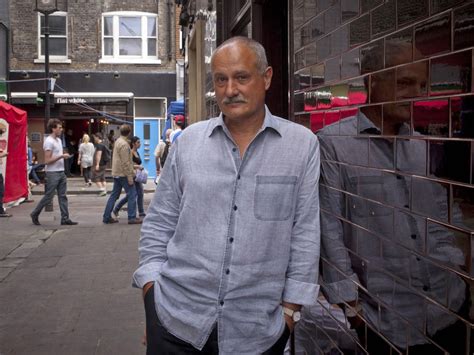A Quote by Howard Jacobson
Sometimes, a writer's life alone can tell a story.
Related Quotes
The ‘experimental’ writer, then, is simply following the story’s commands to the best of his human ability. The writer is not the story, the story is the story. See? Sometimes this is very hard to accept and sometimes too easy. On the one hand, there’s the writer who can’t face his fate: that the telling of a story has nothing at all to do with him; on the other hand, there’s the one who faces it too well: that the telling of the story has nothing at all to do with him
It's only a story, you say. So it is, and the rest of life with it - creation story, love story, horror, crime, the strange story of you and I. The alphabet of my DNA shapes certain words, but the story is not told. I have to tell it myself. What is it that I have to tell myself again and again? That there is always a new beginning, a different end. I can change the story. I am the story. Begin.
Having read my share of tell-alls over the year, including some that were passed off as autobiographies, I mostly feel sad - sometimes for the writer and sometimes for all the people in his way. I hope that the process of writing the tell-all gives some release and closure on what clearly was an unpleasant and unfulfilling life experience.
Writers remember everything...especially the hurts. Strip a writer to the buff, point to the scars, and he'll tell you the story of each small one. From the big ones you get novels. A little talent is a nice thing to have if you want to be a writer, but the only real requirement is the ability to remember the story of every scar. Art consists of the persistence of memory.







































